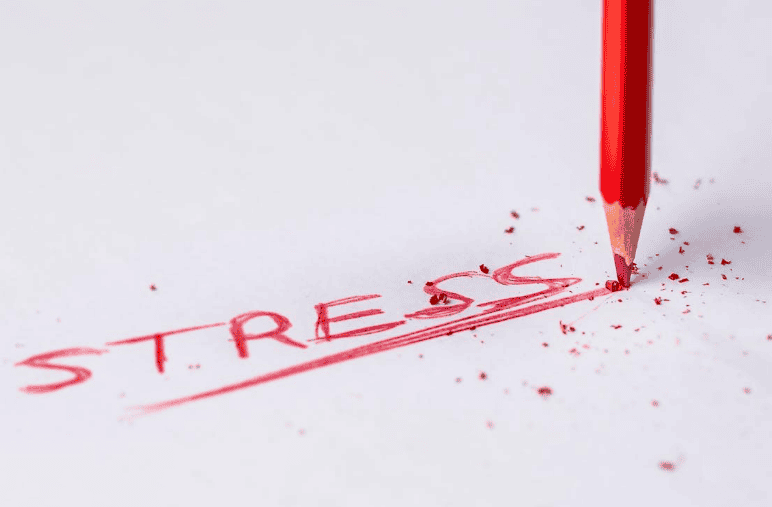Stress is a common experience for everyone, affecting us in various ways depending on our circumstances and personalities. Recognizing different types of psychological stress and understanding how to manage them can significantly improve your mental health and overall quality of life.
In this article, we will explore some different types of stress and provide practical tips to help you cope. Whether you face stress at work, home, or in your relationships, there are effective strategies to lessen the impact on your day-to-day life.
1. Acute Stress
Acute stress is the most immediate form of stress you encounter. Acute stress can feel exciting in small doses, but too much of it is exhausting. For instance, skiing down a steep mountain might be invigorating, while slamming on your brakes to avoid a car accident is taxing.
To manage acute stress, try quick stress relief techniques like deep breathing or taking a short walk. These methods can help reset your stress response and prevent you from feeling overwhelmed.

2. Chronic Stress
Chronic stress wears you down day after day and year after year. It stems from ongoing, unrelenting demands and pressures that seemingly have no end. Common causes include poverty, dysfunctional families, or being trapped in an unhappy marriage or despised job. Chronic stress can be harmful to your health, leading to issues such as depression or anxiety.
Managing chronic stress often requires more robust interventions. It’s advised to consult a professional, particularly one who has pursued an online bachelors in psychology.
They can effectively help patients manage chronic stress by utilizing key skills acquired during their studies. They can apply their understanding of human behavior and the social environment to identify stress triggers and patterns.
Through mastery of behavioral science, they tailor coping strategies that address these unique stressors. Their training in managing high-stress situations enables them to teach patients techniques for staying calm and composed.
Additionally, their skills in communication and professionalism help in building trust and understanding, facilitating open dialogues that support effective stress management and mental wellness.
3. Relationship Stress
Stress from relationships can arise from friendships, family, or romantic partnerships. Common triggers include arguments, miscommunication, or feeling unappreciated or unsupported. Relationship stress can be particularly poignant because our emotional connections make us vulnerable to conflicts and misunderstandings.
To manage relationship stress, focus on open and honest communication. Don’t be afraid to express your feelings and needs calmly and clearly. Sometimes, seeking counseling or therapy can also provide tools and strategies to improve relationship dynamics.
4. Occupational Stress
Occupational stress is related to your job. Common causes include excessive workload, insufficient time to complete tasks, lack of control over work activities, and job insecurity. This type of stress can lead to burnout if not effectively managed.
To cope with occupational stress, prioritize your tasks and set realistic deadlines. Learn to say no or delegate when possible. Also, make sure to disconnect from work during your off hours to maintain a healthy work-life balance. These strategies can help you reduce workplace stress and improve your professional satisfaction.
5. Parental Stress
Parenting is rewarding but can also be incredibly stressful. Challenges such as managing a child’s behavior problems, balancing work and family life, and handling the financial demands of raising children can all contribute to parental stress.
To manage parental stress, it’s crucial to seek support from other parents who understand your challenges. Joining parenting groups or forums can provide both emotional comfort and practical advice. Also, make sure to carve out time for yourself to relax and recharge. Self-care is not selfish; it’s necessary to maintain your well-being and be the best parent you can be.

6. Health-Related Stress
Health-related stress can arise from personal health issues or those of a family member. Chronic illnesses, injuries, or prolonged treatments can lead to significant psychological distress. This type of stress is challenging because it directly affects your physical well-being, which in turn impacts your mental health.
To cope with health-related stress, it’s vital to seek support from health care professionals, counselors, or support groups. Focusing on what you can control, like your attitude and adherence to treatment, can also be helpful. Engaging in gentle exercises, when possible, and practicing relaxation techniques can improve both your mental and physical state.
7. Academic Stress
Students of all ages can experience academic stress. This stress can come from exams, pressure to perform, competition with peers, or workload. For many students, this type of stress is intense and can affect their performance and mental health.
Managing academic stress involves good study habits and time management. Creating a balanced study schedule, taking regular breaks, and setting achievable goals can help reduce pressure. It’s also helpful to communicate with teachers or professors about your stressors; they can offer guidance and potentially adjust expectations or deadlines.
8. Social Stress
Social stress involves stress from interactions with others in social settings, which can include parties, social gatherings, or even public speaking. Common triggers are fear of judgment, peer pressure, or social isolation. This type of stress can lead people to avoid social situations, potentially leading to loneliness.
To manage social stress, try to identify the specific aspects of social interactions that trigger your stress and address them directly. Practicing social skills or role-playing can boost confidence. It’s also beneficial to start with small, manageable social situations and gradually increase exposure as comfort grows.
9. Life Change Stress
Significant life changes, such as moving to a new city, changing jobs, or going through a divorce, can trigger substantial stress. These events can shake your sense of stability and make you feel uncertain about the future.
The best way to manage life change stress is to plan as much as possible and seek support from friends, family, or professionals. Maintaining routines or creating new ones can also provide a sense of normalcy and control. Remember, it’s okay to feel unsettled during major life transitions, and adapting takes time.

Manage The Various Types of Psychological Stress
In this article, we’ve explored a few types of psychological stress and discussed practical ways to manage each. Recognizing the kind of stress you are experiencing is the first step toward managing it effectively.
Implementing the strategies mentioned here can help alleviate your stress and improve your overall well-being. Remember, it’s important to seek help when stress becomes overwhelming—there is no need to face it alone.
Managing stress is not just about reducing discomfort; it’s about enhancing your quality of life and ensuring you lead a happier, healthier life.


